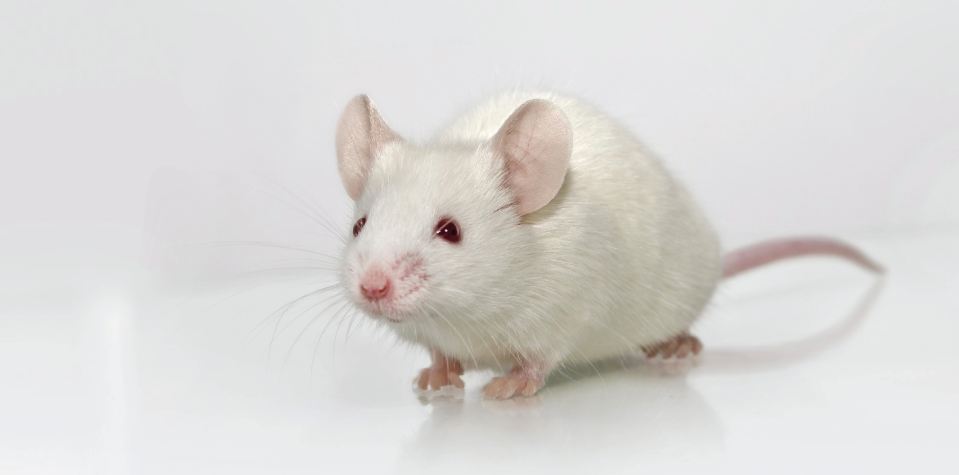| Model No. | Nomenclature | Genotype |
|---|---|---|
| 4207 | C57BL/6-flt3Ltm1Imx | ko/ko |
Flt3l Knockout

- Description
- Price & Licensing
- Overview
- Genetics
- Guides & Publications
- Applications & Therapeutic Areas
- Transit, Housing & Welfare
Overview
Nomenclature: C57BL/6-flt3Ltm1Imx
The ligand for the receptor tyrosine kinase, FMS-like tyrosine kinase 3 (flt3) has an important role in hematopoiesis. The flt3 ligand (flt3l) is a growth factor for hematopoietic progenitors and induces hematopoietic progenitor and stem cell mobilization in vivo. In addition, when mice are treated with flt3l immature B cells, natural killer (NK) cells and dendritic cells (DC) are expanded in vivo;. Mice lacking flt3l (flt3l-/-) show reduced leukocyte cellularity in the bone marrow (BM), peripheral blood, lymph nodes, and spleen. Thymic cellularity, blood hematocrit and platelet numbers are not affected, but significantly reduced numbers of myeloid and B-lymphoid progenitors are found in the BM. In addition, a marked deficiency of NK cells in the spleen is seen. DC numbers are also reduced in the spleen, lymph nodes, and thymus. Both myeloid-related (CD11c++CD8a-) and lymphoid-related (CD11c++ CD8a+) DC numbers are affected.
Availability
This model is no longer available.Origin
C57BL/6 mice genetically deficient in Flt3l were generated by gene targeting in the laboratory of Dr. Jacques Peschon of the Immunex Corporation in 1995. The flt3l gene was disrupted by replacing a 2.8 kb fragment containing the Flt3l exons 1 to 5 (the majority of the extracellular domain) with a PKG-neo cassette. The disrupted gene was introduced into ES cells of C57BL/6 origin, which were injected into BALB/c blastocysts. Resultant male chimeras were bred to C57BL/6 females, and offspring heterozygous for the Flt3l knockout allele were intercrossed to generate Flt3l deficient mice (Flt3l-/-). Different C57BL/6 sublines were used during the development of this strain and therefore an exact control mouse is not available. However, C57BL/6NTac mice were used as controls in the original studies. The line was transferred to the NIAID repository at Taconic in 2000 and embryo transfer derived.
This model is cryopreserved and available for recovery. Models can typically be recovered and delivered to customers within 14-16 weeks after order receipt. Purchase of this model includes perpetual use rights and a deliverable of four mutant animals at the Murine Pathogen Free™ health standard along with a genotyping protocol. For models which include a recombinase gene or multiple alleles, all alleles will be provided, but individual animals may not contain all mutant alleles.
Taconic’s Colony Management experts can design a plan to grow your colony faster.
Genetics
Guides & Publications
Initial Publication:
McKenna HJ, Stocking JL, Miller RE, Brasel K, De Smedt T, Maraskovsky E, Maliszewski CR, Lynch DH, Smith J, Pulendran B, Roux ER, Teepe M, Lyman SD and Peschon JJ. Mice lacking flt3 ligand have deficient hematopoiesis affecting hematopoietic progenitor cells, dendritic cells, and natural killer cells. Blood 1 June 2000, 95(11) 3489-3497
Applications & Therapeutic Areas
- Immunology
- Inflammation
Transit, Housing & Welfare
Need more info? Click the live chat button or Contact Us
- Select my Health Standard
- Get Custom Pricing Guide
Select my Health Standard
Need help choosing the right Taconic Biosciences health standard for your research?
Use the Health Standard Selector to enter your exclusion list. The tool will tell you which health standards meet your requirements.
Get custom pricing guide
Schedule A Scientific Consultation
Speak with a PhD-level Field Application Scientist who can help you select the most appropriate model and maximize your experimental success.
















.jpg)

.jpg)
.jpg)
.jpg)
.jpg)





.jpg)


.jpg)
.jpg)

.jpg)


.jpg)





.jpg)

.jpg)



